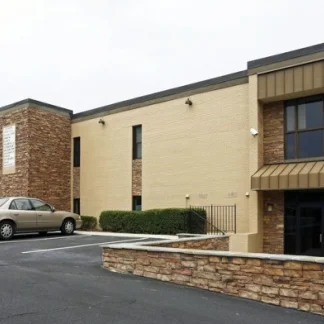Carolina Outreach
Carolina Outreach is located in Fayetteville, North Carolina. Carolina Outreach ...
Elite Care Service is a private organization founded in 2008, licensed by the North Carolina Department of Health and Human Services. Elite Care Service is dedicated to support the needs of individuals in achieving the highest degree of independence possible. Elite Care Service is located at Fayetteville, North Carolina.
The partnerships between Elite Care Service (ECS), consumers and their families, network offers and stakeholders continue to be constant as they share common concerns about their service delivery and quality of care for recipients.
Thus, collaboration with consumers and family members, network providers, and stakeholders continue to guide and drive their quality improvement processes. ECS aims to deliver the highest quality of service to its clients which will demonstrates consistently high standards of professionalism in accordance with all requirements and regulations.
ECS operates a formal, documented management framework which complies with all requirements set by the Industry. All activities carried out by ECS which may have an impact on their service to their clients are controlled and regularly monitored to ensure that the highest standards are maintained throughout every aspect of the company, to satisfy their clients and encourage continual improvement and growth of the company and its operations.
Contact us for more information: (910) 483-0324

Connect with Elite Care Service by calling their admissions team directly.
(910) 483-0324 Website Get DirectionsThe Commission on Accreditation of Rehabilitation Facilities (CARF) is a non-profit organization that specifically accredits rehab organizations. Founded in 1966, CARF's, mission is to help service providers like rehab facilities maintain high standards of care.
CARF Accreditation: Yes
Group therapy is any therapeutic work that happens in a group (not one-on-one). There are a number of different group therapy modalities, including support groups, experiential therapy, psycho-education, and more. Group therapy involves treatment as well as processing interaction between group members. Group Therapy involves 1 hour - 90 minute sessions, twice weekly for a minimum of 8-10 weeks.
In individual therapy, a patient meets one-on-one with a trained psychologist or counselor. Therapy is a pivotal part of effective substance abuse treatment, as it often covers root causes of addiction, including challenges faced by the patient in their social, family, and work/school life. Individual Therapy is a 1 hour session with one of our trained counselors, 2-3 times a month or as needed.
In individual therapy, a patient meets one-on-one with a trained psychologist or counselor. Therapy is a pivotal part of effective substance abuse treatment, as it often covers root causes of addiction, including challenges faced by the patient in their social, family, and work/school life. Individual Therapy is a 1 hour session with one of our trained counselors, 2-3 times a month or as needed.
Carolina Outreach is located in Fayetteville, North Carolina. Carolina Outreach ...
Lighthouse Counseling Center is a private rehab located in Fayetteville, North C...
Greater Image Healthcare is a private rehab located in Fayetteville, North Carol...
Precious Haven – Breezewood is a private rehab located in Fayetteville, North Ca...